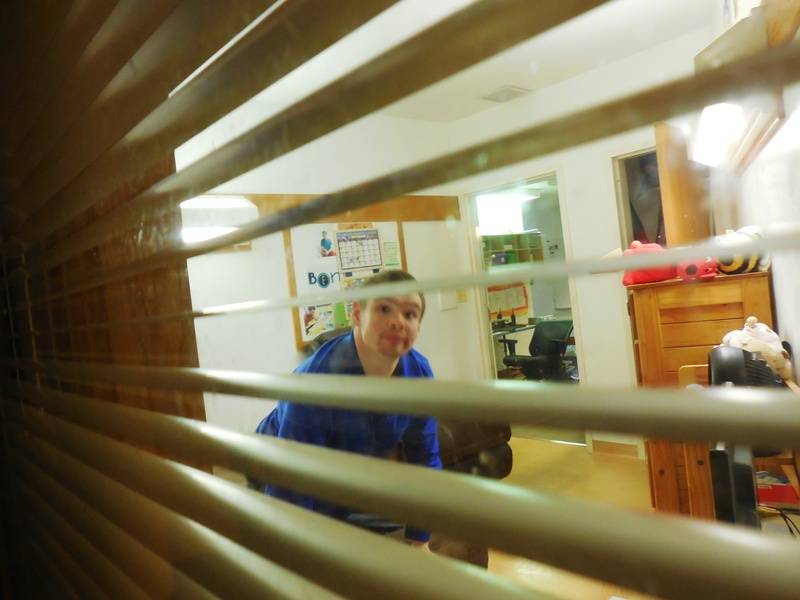NOTE: See the next day’s post, Ben is Not a Monster, for clarification of my using “hellish, vicious, heartless, unrelenting monster” to describe autism, NOT people with autism.
~~~
Another Autism Awareness Day, another plea for true awareness of severe autism.
If you are self-quarantined with a severely autistic person, of any age, I am guessing (not really — I KNOW) that you are intensely envious of anyone whose primary stresses at the moment are anxiety, boredom, toilet paper, and bad hair.
Because they are lucky. Relatively speaking, they have never been luckier. And you know it, even if they don’t.
What once separated many of you from neuro-typical friends, family and most of the world — a world that has little idea what you live through on an average day — now has become a chasm even you could not have imagined a month ago, for you as well as your severely autistic roommate (likely your child — adult or otherwise).
Every huge challenge has now mushroomed, as routines are jettisoned for new ones that, to your severely autistic cohabitant, make no sense, offer little familiarity or stress-reduction, creating a situation that feels intolerable to them, and to you.
Yet you tolerate it, because you have no choice. You try to power through and avoid sinking into a deep despair that threatens to swamp you because there is no end in sight, and no hero to ride in and throw a lifeline over your prison wall.
Listing specifics is unnecessary, because you know.
For those without direct experience, The National Council on Severe Autism (NCSA) offers examples, or this pre-pandemic blog post might provide a small taste.
Then consider what it is like in our Covid-infected world.
It is no exaggeration to describe it as more than just miserable. It can be — it IS — dangerous — emotionally, psychologically, physically. It is dangerous for those suffering directly — the person with autism. And it can be dangerous for their caregivers. Together, they represent many thousands of people trapped with a hellish, vicious, heartless, unrelenting monster.
If you’re waiting for an optimistic ending to this post, sorry (though the NCSA does have some helpful articles addressing this). I have only one suggestion, and I can’t say it’s much.
But if you do know someone self-quarantined with severe autism, please do what you can to help them. Send an email, a text message, make a phone call, offer offer offer. There might not be anything you can do.
But there might.
Even if it is simply lending an ear, to listen to what they are going through, to allow them to complain.
Or sob.
Whatever it is, just offer to help in any way you can.
And mean it.

